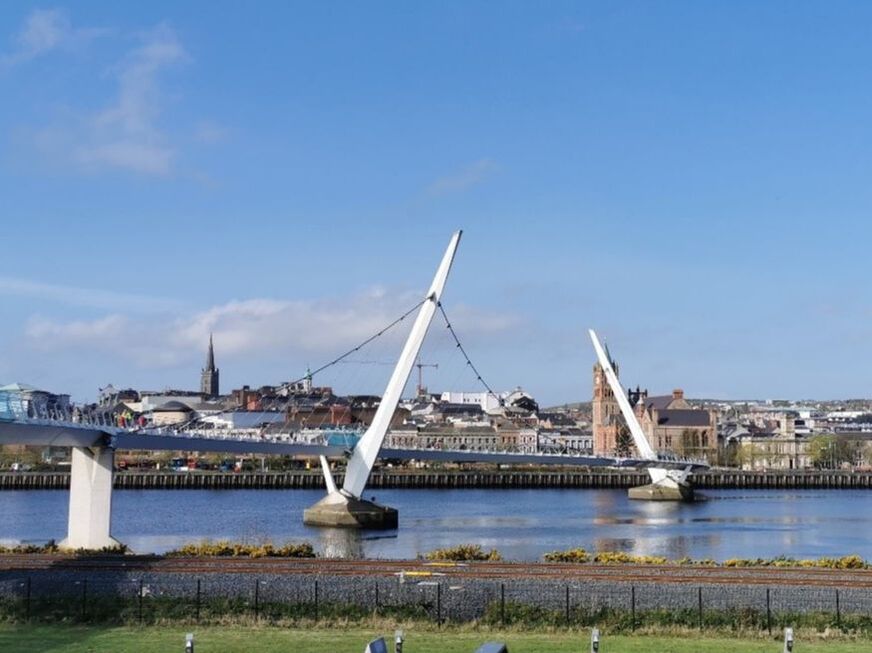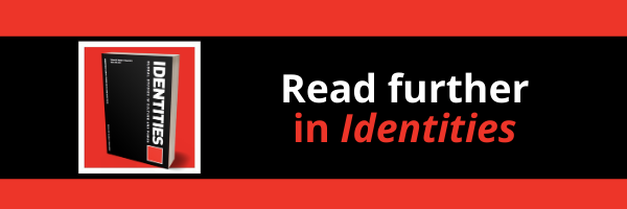|
|
|
In a BBC interview in 2019, Jonathan Powell, Tony Blair’s former Chief of Staff, declared, to the bewilderment of journalist Emily Maitlis, that much of the turmoil over Brexit’s impact on Northern Ireland was driven by questions of identity – particularly national identity. Such concerns have always been central within party-political wrangling in the region. However, the UK’s departure from the EU has placed Northern Ireland’s ‘national question’ in focus globally. Britain’s divorce from its European membership includes the so-called ‘protocol’, which maintains significant alignment between Northern Ireland and the rest of the EU to avoid a physical border in Ireland itself. However, part of this ‘solution’ is instead the implementation of a trade border in the Irish Sea for goods travelling between Great Britain and Northern Ireland.
This seeming economic detachment from the rest of the UK has angered those who view their Britishness as central, or at very least important, to their own identity. However, questions around national identity in the region are much more than a simple dichotomy of Britishness versus Irishness. Identification by individuals as Irish, British, Northern Irish, ‘other’, or a hybrid of all of these reflects more complicated realities. For some individuals, other identity matters, such as those relating to gender or sexuality, might take primacy in their own sense of self or community. Regardless, debates around Brexit and the protocol’s implementation have placed real focus on Northern Ireland’s future. In some quarters, debates on Irish unification are building momentum and generating discussion on how these complex cultural affiliation(s) sit within the wider constitutional question.
Our Identities article on heritages and identities in ‘divided’ societies, ‘Public space, collective memory and intercultural dialogue in a (UK) city of culture’, considered the above questions by reflecting on performances of national and cultural identity during Derry~Londonderry’s year as 2013 UK City of Culture. We considered how Northern Ireland’s second largest city, which straddles the border with the Republic of Ireland, reinterpreted contested public spaces, collective memories and counter public narratives during its tenure. The results, while perhaps short-lived, represented an agonistic and complex relationship between those who view themselves as British, Irish or ‘other’.
The theme of the event captured the need to ‘tell a new story’. The temporary re-naming of public spaces, for example, was carried out in several ways. ‘LegenDerry’ became the ‘unofficial’ name of the city in promotional materials and was introduced as an apolitical compromise in settling a disputed name. A centre piece was a pageant celebrating the contested saint Columba/Colmcille. For the duration of this largely secular event, the city was re-named ‘ColmVille’. Significantly, the River Foyle, which is seen as dividing the city, was reconceptualised as a route instead of a barrier between Protestant and Catholic communities. The river became a place of flowing and flux, uniting, at least temporarily, instead of dividing groups. Since 2013, the socio-economic benefits of the year have been questioned on the ground, but for others 2013 provided some sustainable grassroots connections for meaningful intercultural dialogue. The UK’s withdrawal from the EU has resulted in an ambiguous status for the region. The protocol designed to placate international partners has in some places, including Derry~Londonderry, exacerbated tensions between local communities. The proposed construction of customs facilities for processing goods from Great Britain is highly offensive to those who cherish their Britishness, and who see it as distancing the region from the wider UK. For nationalists, any change to the protocol that may lead to a border in Ireland is resisted, illustrating the intractability of the situation. 2021 commemorates the 1500th anniversary of the birth of Columba/Colmcille, who was presented as a shared icon during the 2013 programme, but Northern Ireland still struggles to reframe its public space in ways that can be accepted by different communities with hybrid identities. Never was intercultural dialogue more needed in navigating a political crisis.
Image credit: Author’s own. Derry’s ‘Peace Bridge’ opened in 2011 and was partly funded by the European Union’s Northern Ireland Peace III Programme.
Blog post by Philip McDermott, Ulster University; Mairéad NicCraith, Heriot Watt University; and Katerina Strani, Heriot Watt University
Read the Identities article: McDermott, Philip; NicCraith, Mairéad; & Strani, Katerina. Public space, collective memory and intercultural dialogue in a (UK) city of culture. Identities: Global Studies in Culture and Power. DOI: 10.1080/1070289X.2015.1054828
Explore other relevant Identities articles:
Whose ‘wee country’?: identity politics and sport in Northern Ireland Politics beyond identity: reconsidering the civil rights movement in Northern Ireland Visual and textual narratives of conflict-related displacement in Northern Ireland
0 Comments
Your comment will be posted after it is approved.
Leave a Reply. |
|
Explore Identities at tandfonline.com/GIDE |
|
The views and opinions expressed on The Identities Blog are solely those of the original blog post authors, and not of the journal, Taylor & Francis Group or the University of Glasgow.


